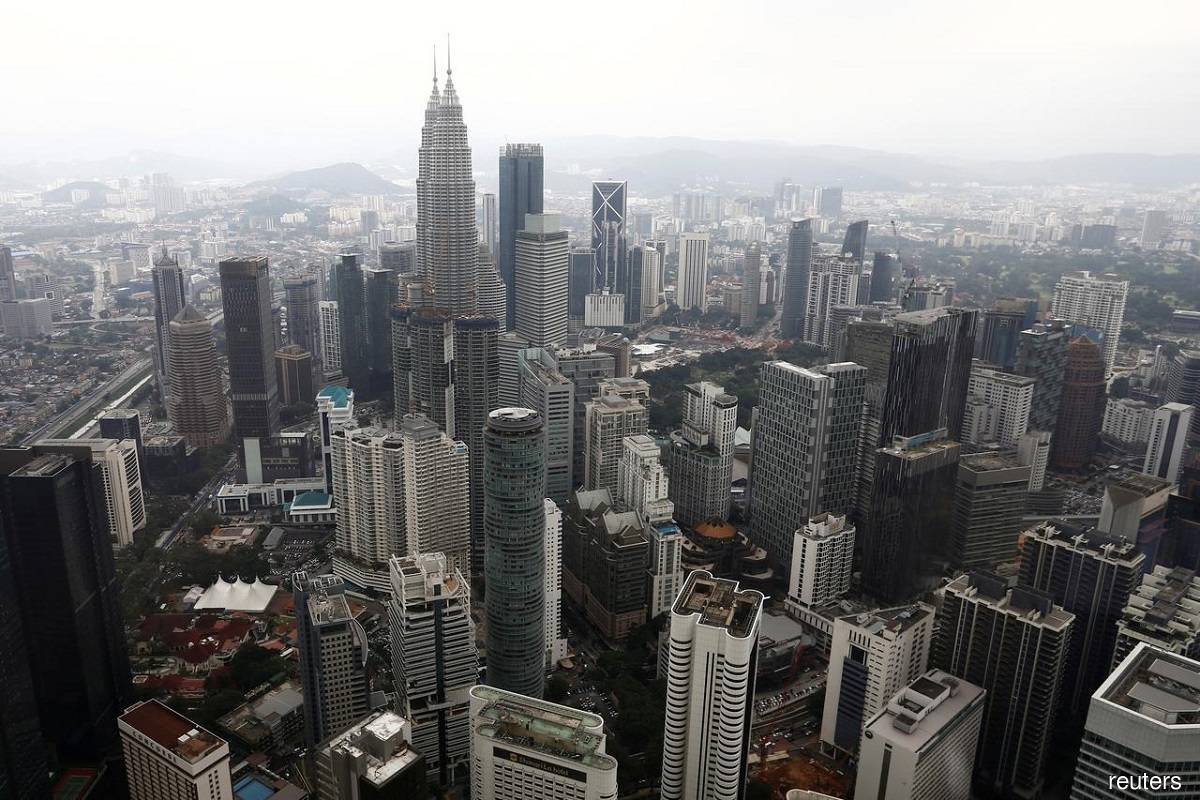Malaysian economy picking up but may not fully recover to 2019 levels by year-end, says AmBank Research
 The Malaysian economic recovery is set to gain further momentum in the second half of this year (2H22) despite political noise, but the country’s economy is still nowhere close to 2019 levels yet, said AmBank Research.
The Malaysian economic recovery is set to gain further momentum in the second half of this year (2H22) despite political noise, but the country’s economy is still nowhere close to 2019 levels yet, said AmBank Research.
AmBank Research 表示,尽管存在政治噪音,但马来西亚经济复苏仍将在今年下半年(2H22)获得进一步的动力,但该国的经济仍远未接近 2019 年的水平。
Malaysia is expected to post a 5.6% growth in gross domestic product (GDP) this year, mainly supported by strong trade and investment activities, coupled with low base effect, said the research firm’s chief economist Dr Anthony Dass.
该研究公司的首席经济学家Dr Anthony Dass表示,预计马来西亚今年的国内生产总值(GDP)将增长 5.6%,这主要得益于强劲的贸易和投资活动以及低基数效应。
The Southeast Asian trade and transit hub’s economy grew 5% in the first quarter this year, after posting 3.1% GDP growth in 2021.
继 2021 年 GDP 增长 3.1% 之后,这个东南亚贸易和过境枢纽的经济在今年第一季度增长了 5%。
“Things are slowly picking up after we opened the borders; whether we have gone back to 2019 level, no, but many [sectors] are slowly coming up,” he said at a virtual briefing on 2H market outlook on 3rd June.
“我们开放边界后,事情正在慢慢好转;我们是否回到了 2019 年的水平,没有,但许多 [sectors] 正在慢慢上涨,”他在6 月 3 日2H 市场前景的虚拟简报中表示。
The economist said the electrical and electronics (E&E) sector is one of the exceptions, buoyed by strong chip demand globally, but overall businesses are still clouded by elevated input prices, which post upward pressure on underlying inflation.
这位经济学家表示,电气和电子 (E&E) 行业是例外之一,受全球芯片需求强劲的提振,但整体业务仍因投入价格上涨而蒙上阴影,这对潜在通胀构成上行压力。
“Globally, we only see there is a strong demand-pull inflation in the United States, because the household balance sheet there is still very strong. Whereas in many other countries including Malaysia, it is more costs-driven [inflation],” he said.
“在全球范围内,我们只看到美国存在强劲的需求拉动通胀,因为那里的家庭资产负债表仍然非常强劲。而在包括马来西亚在内的许多其他国家,这更多是由成本驱动的[通货膨胀],”他说。
Having said that, Dass noted that most domestic economic indicators are suggesting recovery is gathering steam.
话虽如此,Dass指出,大多数国内经济指标都表明复苏正在加速。
“What we are seeing today is people are spending more, business loans, wholesale and retail trade, their trends are all slowly coming up. All these are showing that we are recovering, but we have not come to 2019 levels,” he added.
“我们今天看到的是人们的支出增加了,商业贷款、批发和零售贸易,它们的趋势都在慢慢上升。所有这些都表明我们正在复苏,但我们还没有达到 2019 年的水平,”他补充说。
External headwinds are expected to remain as Malaysia is a very open economy after Hong Kong and Singapore, the economist said, and warned that China’s “pro-Russia” policy may hurt major trading partners like Malaysia.
这位经济学家表示,由于马来西亚在香港和新加坡之后是一个非常开放的经济体,预计外部阻力仍将存在,并警告称,中国的“亲俄”政策可能会伤害马来西亚等主要贸易伙伴。
“This is always on the back of my mind, if that happens, it is certainly going to hurt Malaysia as China is the largest trading partner, representing 13.5% of total trade,” he explained.
“这一直在我的脑海里,如果发生这种情况,肯定会伤害马来西亚,因为中国是最大的贸易伙伴,占贸易总额的 13.5%,”他解释说。
Dass expects Malaysia's exports to grow 16% to 17% this year, with E&E, rubber glove, crude palm oil, crude petroleum and natural gas supporting overall external trade.
Dass 预计马来西亚今年的出口将增长 16% 至 17%,其中电子电气、橡胶手套、毛棕榈油、原油和天然气支持整体对外贸易。
“We will be riding a lot on the price factor, more than the volume itself,” he said, due to the ongoing labour shortage issues, especially in the palm oil industry.
“我们将更多地依赖价格因素,而不是数量本身,”他说,因为劳动力短缺问题持续存在,尤其是在棕榈油行业。
“Palm oil is picking up but we have a new challenge — Indonesia has stopped labour coming into Malaysia, assuming average CPO price of RM5,500, the plantation industry should be facing a revenue loss of RM20-24 billion this year. If we take [year-to-date average price of] RM6,440, then we are talking about easily losing RM24-28 billion,” he said.
“棕榈油正在回升,但我们面临新的挑战—印度尼西亚已停止劳动力进入马来西亚,假设平均原棕油价格为 5,500 令吉,种植业今年将面临 20 至 240 亿令吉的收入损失。如果我们以[年初至今的平均价格] 6,440令吉,那么我们谈论的是容易损失24-280亿令吉,”他说。
In terms of investment, Dass said Malaysia is still being viewed positively by international companies judging from investment approved up to 2021.
在投资方面,Dass表示,从截至 2021 年批准的投资来看,国际公司仍对马来西亚持积极态度。
“Bulk of the approved investments are not for expansion, they are for new commitments irrespective of the country’s political climate. But to say Malaysia is losing investment is also true,” he said.
“大部分获批的投资不是为了扩张,而是为了新的承诺,无论该国的政治气候如何。但说马来西亚正在失去投资也是正确的,”他说。
Dass said investments that Malaysia is losing are those involving low-cost labour as wages have gone up in the country, and public policies seem to focus on creating more jobs with higher value-add
Dass表示,马来西亚正在失去的投资是那些涉及低成本劳动力的投资,因为该国的工资上涨,公共政策似乎侧重于创造更多具有更高附加值的就业机会。
